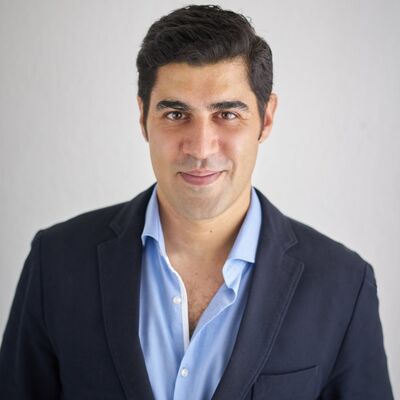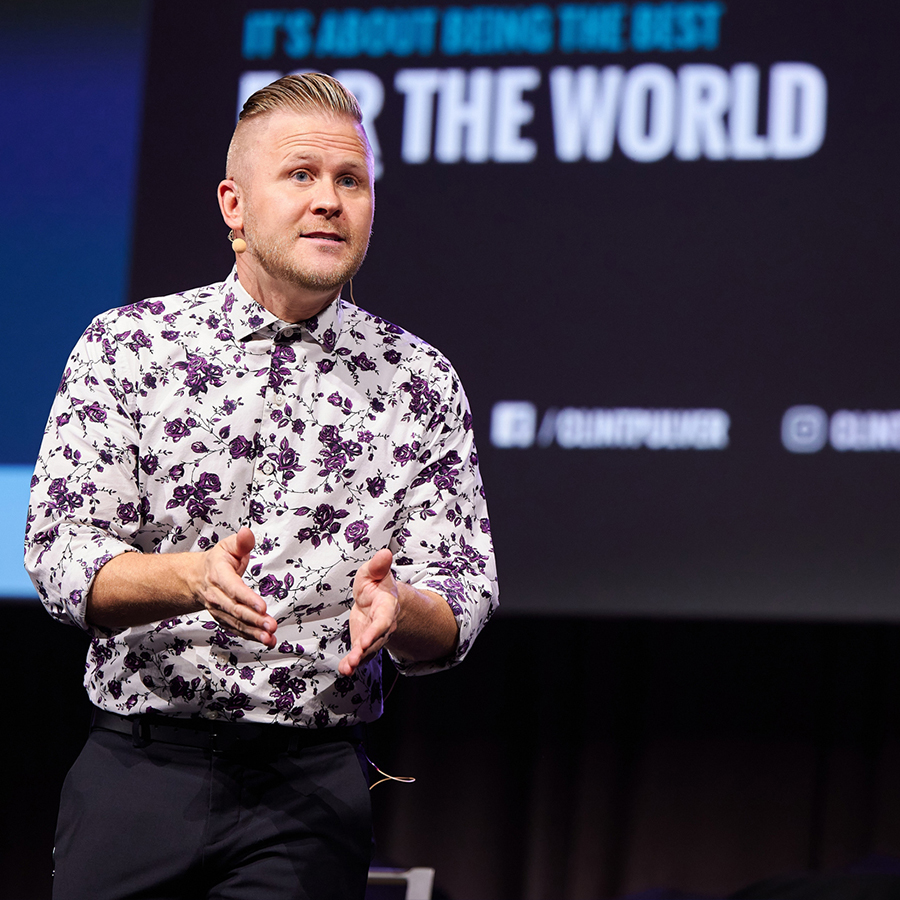Dr. Parag Khanna is a leading global strategy advisor, world traveler, and bestselling author. He is the Founder & CEO of Climate Alpha, an AI-powered analytics platform that forecasts asset values to future-proof global real estate, and Founder & Managing Partner of FutureMap, a data and scenario-based strategic advisory firm. Khanna is the bestselling author of MOVE: Where People are Going for a Better Future, which was preceded by The Future is Asian: Commerce, Conflict & Culture in the 21st Century. He wrote a trilogy of books on the future of world order beginning with The Second World: Empires and Influence in the New Global Order, followed by How to Run the World: Charting a Course to the Next Renaissance, and concluding with Connectography: Mapping the Future of Global Civilization. He is also the author of Technocracy in America: Rise of the Info-State and co-author of Hybrid Reality: Thriving in the Emerging Human-Technology Civilization. His books have been translated into more than twenty languages. Khanna was named one of Esquire’s “75 Most Influential People of the 21st Century,” and featured in WIRED magazine’s “Smart List.”
Dr. Khanna has been an adviser to the US National Intelligence Council’s Global Trends program. He was a Senior Research Fellow in the Centre on Asia and Globalisation at the Lee Kuan Yew School of Public Policy at the National University of Singapore. He was also a Senior Research Fellow at the New America Foundation.
Dr. Khanna served in Iraq and Afghanistan as a senior geopolitical adviser to the United States Special Operations Forces. He previously was the Global Governance Fellow at the Brookings Institution, worked at the World Economic Forum in Geneva, and was a Research Associate at the Council on Foreign Relations in New York.
A widely cited global intellectual, Khanna provides regular commentaries for international media. His cover essay for the New York Times Magazine titled “Waving Goodbye to Hegemony,” is one of the most globally debated and influential essays since the end of the Cold War. Khanna’s essays, reportage, and columns have appeared in major international publications such as the New York Times, Wall Street Journal, Financial Times, Washington Post, Harvard Business Review, National Geographic, TIME, Foreign Affairs, Scientific American, Popular Science, Axios, Forbes, The Atlantic, Quartz, Foreign Policy, Noema, Harper’s, BusinessWeek, The Guardian, The National Interest, McKinsey Quarterly, The American Interest, Global Policy, Stratfor, Esquire, Slate.com, and Die Zeit.
Dr. Khanna also appears frequently in media around the world such as CNN, BBC, CNBC, Bloomberg, Al Jazeera, and other broadcasters. Khanna has spoken at TED, spoken and hosted at TED Global, and he was the lead speaker at TEDxGateway. His TED talks have been viewed more than three million times. The maps customized for Khanna’s books have been displayed in numerous prestigious international art exhibitions.
Dr. Khanna lectures frequently at international conferences and gives tailored briefings to government leaders and corporate executives on global trends and scenarios, systemic risks and technological disruptions, market entry strategies, and economic master planning. He has provided expertise to many governments including the US, Canada, Brazil, Argentina, UK, Germany, Switzerland, the Netherlands, Norway, Finland, Italy, Estonia, Russia, Azerbaijan, Kazakhstan, the United Arab Emirates, Saudi Arabia, Oman, Qatar, Japan, India, Australia, South Korea, Pakistan, Indonesia, the Philippines, Mongolia, Bhutan, Chile, Malta, and numerous others. He served on the Singapore government’s Committee on the Future Economy and currently sits on the UAE Ministry of Economy’s International Advisory Council. He also currently serves as a senior advisor to Gulf Capital, sits on the board of directors of the Out of Eden Walk, and as a member of the advisory boards of GeoQuant, Graticule Asset Management Asia (GAMA), Datarama, and Henley & Partners, and previously on the Innovation Advisory Board of DBS Bank and Globality.
Dr. Khanna holds a Ph.D. in international relations from the London School of Economics, and a Bachelor’s and Master’s degrees from the School of Foreign Service at Georgetown University. He was awarded a Richard von Weizsaecker fellowship of the Robert Bosch Academy. He has been a Senior Fellow of the Singapore Institute of International Affairs, Visiting Fellow at LSE IDEAS, Senior Fellow at the European Council on Foreign Relations, Distinguished Visitor at the Munk School of Global Affairs at the University of Toronto, Distinguished Visitor at the American Academy in Berlin, Next Generation Fellow of the American Assembly, Visiting Fellow at the Lee Kuan Yew School of Public Policy, Non-Resident Associate of the Institute for the Study of Diplomacy at Georgetown University, and a Visiting Fellow at the Observer Research Foundation in New Delhi. He has received grants from the United Nations Foundation, Smith Richardson Foundation, and Ford Foundation.
Born in India, Khanna grew up in the United Arab Emirates, New York, and Germany. He is an accomplished adventurer who has traveled to more than 150 countries on all continents. Some of his lengthy journeys include driving from the Baltic Sea through the Balkans and across Turkey and the Caucasus to the Caspian Sea, across the rugged terrain of Tibet and Xinjiang provinces in western China, and ten thousand kilometers from London to Ulaanbaatar in the Mongolia Charity Rally. He has climbed numerous 20,000-foot-plus peaks and trekked in the Alps, Himalayas, and Tien Shan mountain ranges. Khanna is also a competitive tennis player.
Dr. Khanna has been honored as a Young Global Leader of the World Economic Forum and has served on the WEF’s Global Future Council on Mobility, Global Agenda Council on Geoeconomics, and the advisory board of its Future of Urban Development Initiative. He also serves on the board of trustees of the New Cities Foundation, the Council of the American Geographical Society, and the advisory board of Independent Diplomat. He is a former term member of the Council on Foreign Relations, International Institute for Strategic Studies, and a Fellow of the Royal Geographical Society. He was awarded the OECD Future Leaders Prize. He speaks German, Hindi, French, Spanish and basic Arabic.











